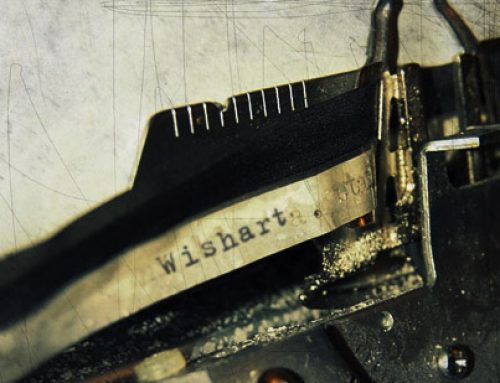The Story of Thomas Wishart – A Supercentenarian
The following article was published in the London Evening Post (edition dated 31 Jan – 2nd Feb 1760) and concerns a Thomas Wishart (Wishart Tree 101 – see the foot of this page) who was alleged to have lived to 125 years old. His headstone corroborates this, although of course there is no way of actually checking how true these claims were. Nevertheless, it is a great story and was often reported in newspapers for the next hundred years, particularly when referring to some of Thomas’ descendants, who also achieved a decent amount of longevity. Originally from Fife, Thomas is the progenitor of all the Wisharts who lived in Dumfriesshire from the 1700’s onwards, many of who have descendants living all over the world today.
![]() January 24, 1760.
January 24, 1760.
‘Being on a visit to a Gentleman’s Family near this Place, I found them talking of the Death of an old Man who was buried there some Weeks since. The Age of the Man, and some other Circumstances relating to him, appeared to me so extraordinary, that I imagined you might think them worthy the Notice of the Publick (sic). From a Daughter of the deceased, and from some of his Neighbours whom I sent for, I obtained the following Account.
Thomas Wishart was born in the Parish of Finglassie, Fifeshire, Sept, 26, 1635, and died at Turfrig in the Parish of Kirkpatrick-Fleming, in Annandale, Dec 19, 1759, and consequently lived something more than 124 Years. He was bred a Shoemaker, but wrought occasionally as a Day Labourer. He was first married at the Age of Seventeen, and had six Children by that Marriage, the eldest of which, had he still been alive, would have been 106; and another yet alive, is 81. In the 70th Year of his Age he came to reside in Annandale, and soon married again. The Issue of this Marriage was twelve Children; the youngest of which is a lusty young Fellow, six Feet high, aged 21. I have found nothing remarkable in the Way of living of this old Man, except that he chewed Tobacco from seven Years old to his Death. The great indigence in which his whole Life was spent, obliged him to Temperance; but when drink was in his Power, he shewed that Temperance was not with him a Matter of choice. This venerable Strulbrug was seldom heard to complain of Age or Infirmity, but always expressed great regret at a Funeral, envying the deceased, and saying, ‘Every Body can die but me.’ Enquiring about his Memory, they mentioned some Pieces of Chronology, which, as they are peculiar to Scotland, I am not much acquainted with. He used to talk much of the great Eclipse called Mirk Monday. He said he was then employed in ditching, and well remembered that several frightened Birds dropped near him. He also remembered what he called the White Harvest; which I found to be some Time of civil Commotion, when the Men were obliged to leave that Work to the Women.
Seven Years since he was seized with the Palsy; but recovered in six Weeks, and only retained a little Defect in his Speech, which made him less conversable, though not less Communicative. He had lost no Teeth, heard well, and saw so clearly as to thread a small Needle (which was shewn me) two Days before he died. He walked erect, and went six Miles, on very uneven Ground, ten Days before his Period. The Day he died, he had sent his Daughter for a Taylor to make him a Winter Coat, and was left alone. He rose, went to the Peatstack for Fewel, and to the Well for Water, made his Breakfast, and had taken Part of it, being found fallen back upon a low Table, and Senseless; and though he had got a slight Contusion on his Face by the Fall, still holding his Spoon in one Hand, and the Dish in the other. This was at Twelve on Monday Noon. He lived till Four the next Day in the Afternoon, breathing as if asleep, gradually weaker, till he expired without a Groan.’




